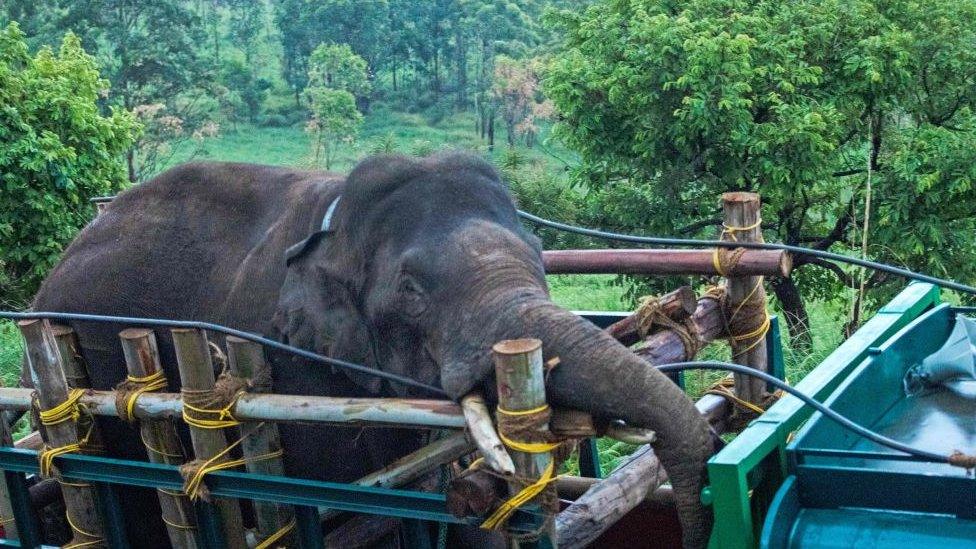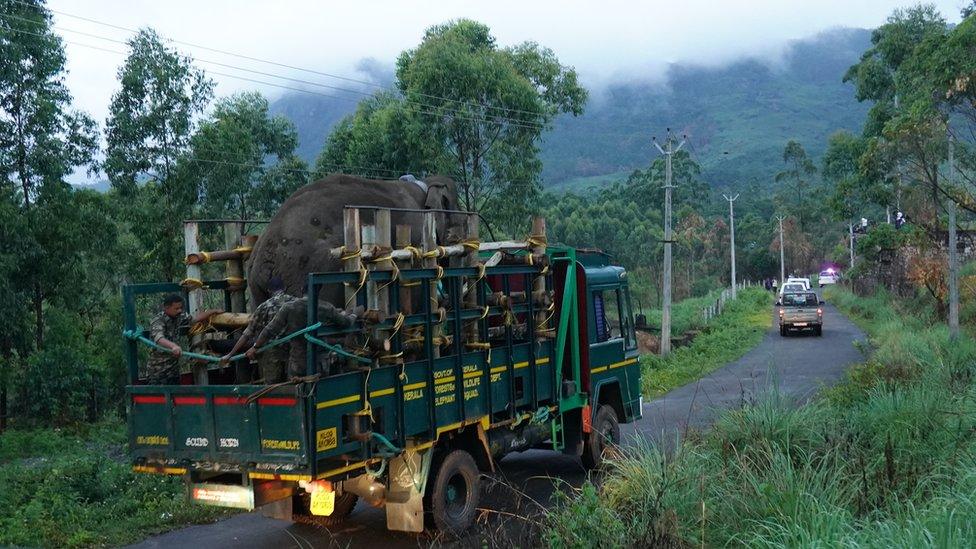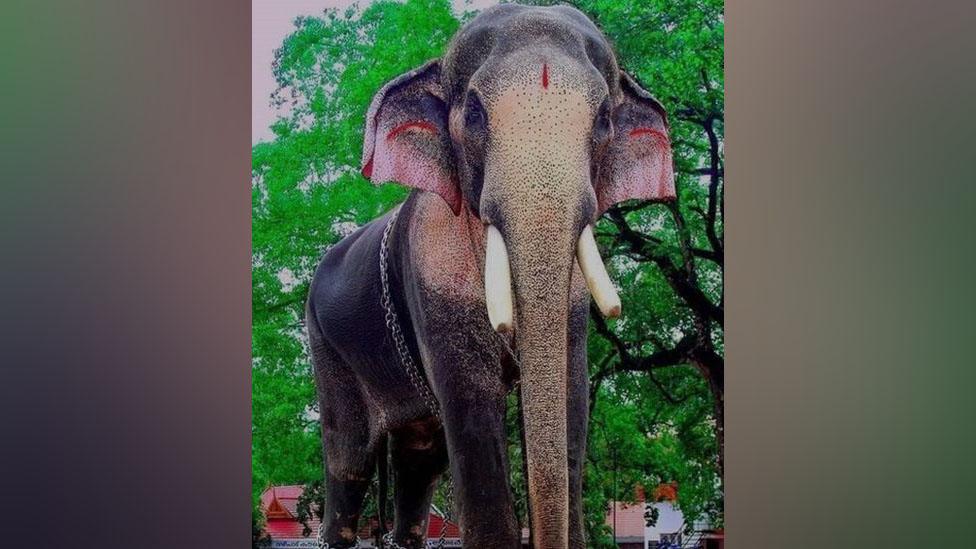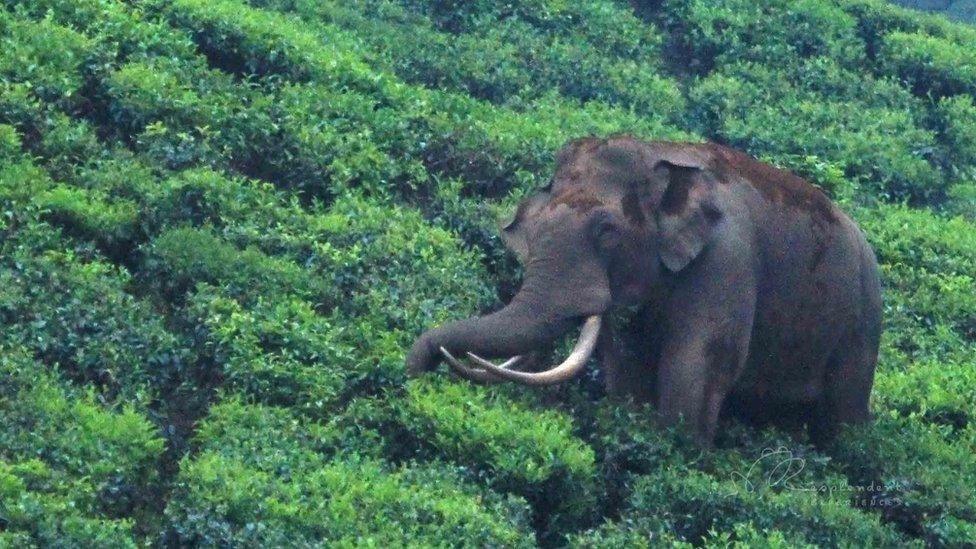Arikomban: 'Killer' Indian elephant relocated to tiger reserve
- Published

Arikomban was captured and moved to a tiger reserve over the weekend
A wild elephant who sparked a massive debate and a legal battle in the southern Indian state of Kerala has been relocated to a tiger reserve.
Officials claim Arikomban ("rice tusker" in the Malayalam language) - named for his raids on local shops for rice - has killed seven people.
Locals near his original habitat had demanded his relocation for months.
On Saturday, he was tranquillised and shifted to Periyar Tiger Reserve, around 80km (50 miles) away.
Government authorities have called the mission a success - they say they are monitoring Arikomban's movements, and have received the first set of signals from a radio collar attached to him.
But activists say the debate points to a larger issue of human-wildlife conflict and cannot be solved by displacing one animal.
According to the last elephant census in 2017, India has close to 30,000 wild elephants - around 60% of all wild Asian elephants. Loss of habitat and fragmentation often force them to enter human habitats and raid crops, leading to conflicts.
Arikomban, believed to be more than 30 years old, was a familiar sight for people who lived near the Devikulam forest range in Idukki district for decades.
Locals told The New Indian Express, external newspaper that earlier, when huts in the area were made of bamboo and grass, the elephant caused little damage when he came foraging for food. But as the population grew and houses made of concrete became common, the elephant started damaging buildings and having run-ins with humans, leading to protests from locals.

Activists had raised concerns about Arikomban being turned into a captive elephant
Initially, the state forest department planned to capture Arikomban and make him a trained captive elephant. But animal welfare activists petitioned the Kerala high court against this.
The government told the court that the elephant had killed seven people. Activists have questioned this.
"During our inquiry in the area, tribal people said that Arikomban had not killed anyone," says Sreedevi S Kartha, a member of People for Animals, one of the organisations that filed the plea in court.
The high court then formed a five-member committee, which recommended that the elephant be captured and relocated to an area where there would be little chance of conflict with humans. The panel's initial suggestion of moving the elephant to the Parambikulam Tiger Reserve in Palakkad district sparked protests from people living there.
The Kerala government then approached the Supreme Court to appeal against the high court's order to relocate Arikomban. The top court, however, refused to interfere in the matter.
The government then began scouting for alternative locations to move the elephant and began a massive operation - involving a task force of 150 officials - to track and capture it.
After a two-day-long operation, a tranquilised Arikomban was herded into a truck on Saturday and relocated to the Periyar Tiger Reserve.
Reports said that authorities had imposed a curfew and deployed police personnel in case locals protested against Arikomban's arrival. However, the elephant's arrival was reportedly greeted with cheers, external.
Ms Kartha told the BBC that their petition had asked for Arikomban to be kept in his original habitat as that was the best option.
"But in his case, his life was in danger because people in the area had become very hostile. That is why the committee of experts decided that translocation would be better," she said.
BBC News India is now on YouTube. Click here, external to subscribe and watch our documentaries, explainers and features.

Read more India stories from the BBC:

- Published9 February 2023

- Published4 February 2023

- Published24 April 2018